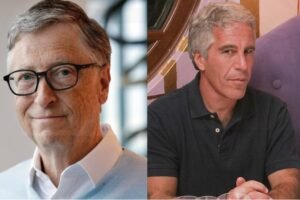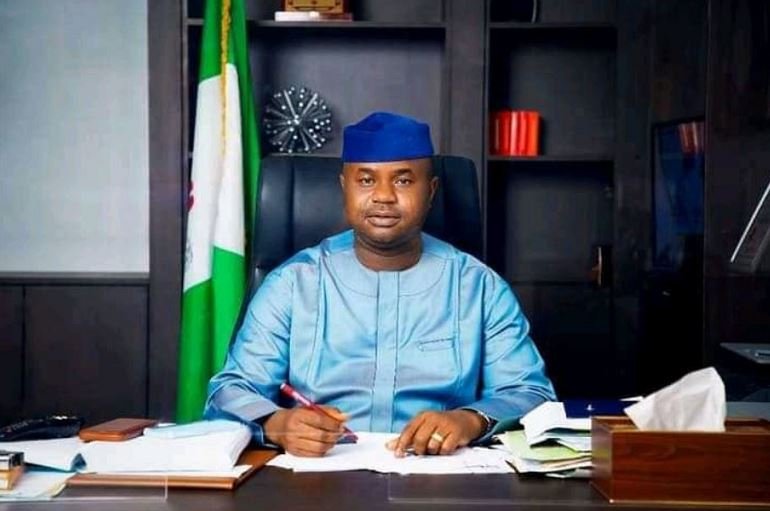Alhaji Aliko Dangote, President and CEO of Dangote Group, has called on the Federal Government to entirely eliminate petrol subsidies.
He stated that the removal will aid in determining the country’s true petrol usage while also confirming ownership of two upstream oil blocks with a production date of next month.
Dangote also remarked that petroleum production from his $20 billion mega refinery in Lagos will help relieve pressure on the naira. The refinery can process 650,000 barrels of crude oil per day.
In a 26-minute interview with Bloomberg Television in New York on Monday, which was observed by our journalist, Dangote stated that now is the time to abolish fuel subsidies.
Dangote further noted that ending petrol imports will have a huge upside in easing currency pressures.
He said, “Subsidy is a very sensitive issue. Once you are subsidising something, then people will bloat the price, and then the government will end up paying what they are not supposed to be paying. It is the right time to get rid of subsidies.”
“But this refinery will resolve a lot of issues out there; you know, it will show the real consumption of Nigeria, because, you know, nobody can tell you. Some people say 60 million litres of gasoline per day.
“Some say it’s less. But right now, if you look at it by us producing, everything can be counted. So everything can be accounted for, particularly for most of the trucks or ships that will come to load from us.
“We are going to put a tracker on them to be sure they are going to take the oil within Nigeria, and that, I think, can help the government save quite a lot of money. I think it is the right time, you know, to remove the subsidy.”
The Africa’s richest man, who recalled the challenges faced after the project’s launch in 2013, experiencing a five-year delay due to issues with state government and host communities and a running loan of $2.4bn, said he is personally proud to achieve the feat.
Speaking on whether the subsidy will make the refinery viable, Dangote said, “Well, you see, we have a choice of either one. We produce, we export, and when we produce, we sell locally. But we are a big private company. And yes, it’s true; we have to make a profit. We build something worth $20bn, so definitely we have to make money.
“The removal of subsidies is totally dependent on the government, not on us. We cannot change the price, but I think the government will have to give up something for something. So I think at the end of the day, this subsidy will have to go.”
President Bola Tinubu eliminated the subsidy when he took office in May 2023, aggravating a cost-of-living crisis that spurred protests, but immediately reinstated it as inflation skyrocketed.
Another step towards ending it was done in early September, when the petrol cap was lifted, though the price remains below market levels.
Nigeria was completely reliant on imported petroleum products until Dangote’s refinery came online, and the country has been making modest steps to finally stop its costly fuel subsidies, which cost $10 billion in 2022.
Dangote, who has the option of exporting or selling his fuel domestically, said the government made the decision on subsidies, but he added that eliminating petrol imports will have a significant impact on relieving currency tensions.
The naira has lost around 70% of its value against the dollar since regulations that kept the currency artificially high were lifted last year.
However, the scarcity of the greenback in the Nigerian foreign currency market continues to weigh on the naira, which is exacerbated by the necessity to pay for imported petrol in dollars.
“Petroleum products consume about 40 percent of our foreign exchange,” Dangote said, adding that fuel from his refinery, which started supplying gasoline on Sept. 15 to the state-owned oil company for domestic sale, “can actually stabilise the naira.”
Continuing the discussion, the businessman discussed the pricing conflict with the Nigerian National Petroleum Company Limited, NNPCL.
He stated that the national oil business purchased its current stock from the refinery at a lower price than its imported fuel but charged the same price for all products.
“There wasn’t really a disagreement, per se. NNPC bought from us on the 15th of September at the international price, which they also bought, about 800,000 metric tonnes of gasoline imported. So the one that they bought from us actually is cheaper than the one they are importing.
“And so when they announced our price, the guy, I don’t know whether he was authorized. It wasn’t really the real price. What they have announced is most likely what it cost them, including profit and other expenses.
“And then the other one is one that they imported. But the people don’t know how much they spend in terms of imports, but their importation is almost, maybe about 15 percent more expensive than ours, you know.
“So what they are supposed to do is sell at a basket price, or if they want to remove subsidies, they can announce that they will remove subsidies, which is okay; everybody you know will adjust it,” Dangote said.









